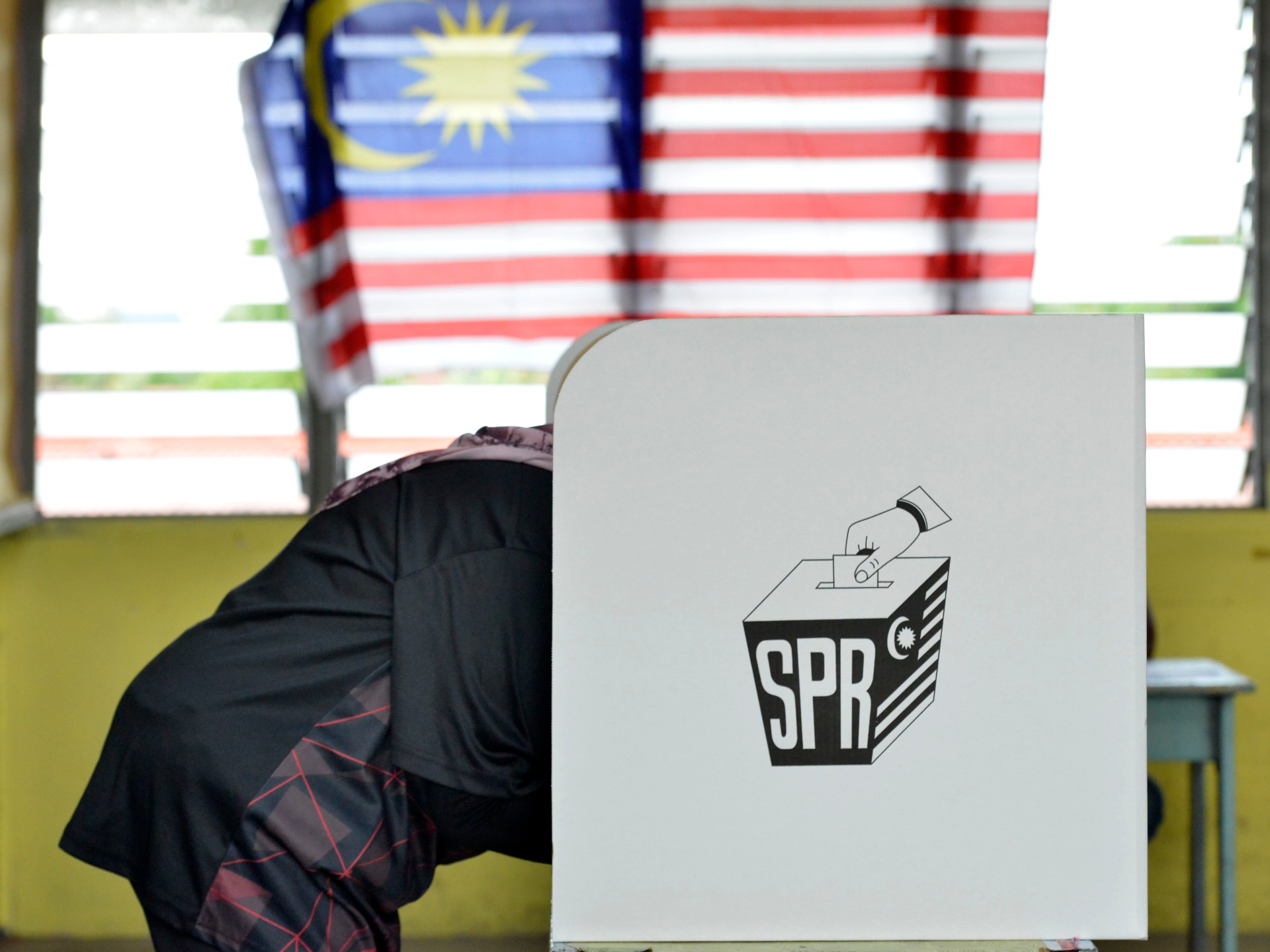Opposition leader Anwar Ibrahim and rival Muhyiddin Yassin each insist they have the support to lead as uncertainty continues.
Published On 21 Nov 2022
Kuala Lumpur, Malaysia – Malaysian opposition leader Anwar Ibrahim and former Prime Minister Muhyiddin Yassin have each said they have enough support among legislators to form a new government after the weekend’s hotly-contested election failed to resolve the political uncertainty that has plagued the Southeast Asian nation in recent years.
Anwar’s Pakatan Harapan (PH) coalition came out on top in Saturday’s election with 82 seats, and he announced shortly afterwards that the coalition had the numbers to lead.
Throughout Sunday, he declined to elaborate on PH’s backers and urged Malaysians to be patient when door-stopped by local media last night.
Muhyiddin earlier said his Perikatan Nasional (PN) coalition, which came second with 73 seats and is dominated by the Pan-Malaysian Islamic Party (PAS), had negotiated enough support from other legislators for him to form a government, sharing a photo on social media of a meeting with one of the Borneo leaders whose backing he needs.
A party or coalition needs to secure a majority of 112 seats in parliament to form a government. Malaysia’s constitutional monarch has set politicians a 2pm local time (06:00 GMT) deadline to submit their choice to the palace.
Maaf buat teman-teman tunggu lama. Saya harap semua dapat bersabar dan doakan yang terbaik buat negara. pic.twitter.com/J1UhCNh15C
— Anwar Ibrahim (@anwaribrahim) November 20, 2022
[Translation: I’m sorry for the long wait friends. I hope everyone can be patient and pray for the best for the country.]
Anwar has not elaborated on the parties that might join PH in government, but the coalition theoretically needs to join forces only with Barisan Nasional (BN), which won 30 seats, to form a government.
Muhyiddin needs the backing of the Borneo parties as well as BN to have a parliamentary majority.
In a statement released on Sunday, Abang Johari Openg, the Sarawakian leader, said the Borneo parties and BN had agreed to back Muhyiddin.
“They will often make the case for autonomy and more devolution of powers,” political analyst Oh Ei Sun said of the Borneo leaders. “On the other hand, I do think when it comes to political calculations on which coalition to join it’s very much more about the vested interests of politicians there than the livelihoods and wellbeing of the people.”
BN’s position also complicates the calculation.
After Abang’s statement, Ahmad Zahid Hamidi, the president of the United Malays National Organisation (UMNO) and leader of BN, said in his own statement that the coalition was not part of the deal. He reminded the coalition’s members of the pact that he had made to support his decision.
Zahid is under intense pressure from UMNO to resign after BN’s dismal performance in an election he is thought to have pressured Prime Minister Ismail Sabri into calling. Zahid is also on trial for corruption, and surveys show he is deeply unpopular with the Malaysian public.
Malaysia has been struggling with political instability since PH won the 2018 election, ejecting BN from power for the first time since Malaysia’s independence amid outrage at the multibillion-dollar corruption scandal surrounding state fund 1MDB.
PH went on to rule for a couple of years amid pushback from some elements of the country’s conservative nationalist Malays, but the coalition collapsed after an internal power grab in February 2020.
That led to Muhyiddin, who was among those who had defected from PH, being named prime minister with the backing of BN.
The political jostling continued even as the COVID-19 pandemic raged, and Muhyiddin was replaced by Ismail Sabri a little over a year later.

Official figures from Saturday’s election showed a record number of Malaysians casting their votes, with PH securing 5.81 million, PN 4.67 million and BN 3.43 million. The electoral roll had been enlarged after a constitutional change to give 18-year-olds the right to vote and for automatic voter registration, which further increased uncertainty over the outcome.
Malaysia is an ethnically-diverse nation with a Malay Muslim majority and significant communities of ethnic Chinese and Indians, as well as Indigenous people.
The rise of PAS in the election caught many by surprise and has raised concern about Malaysia’s future direction in a country where race and religion have long been divisive issues.

